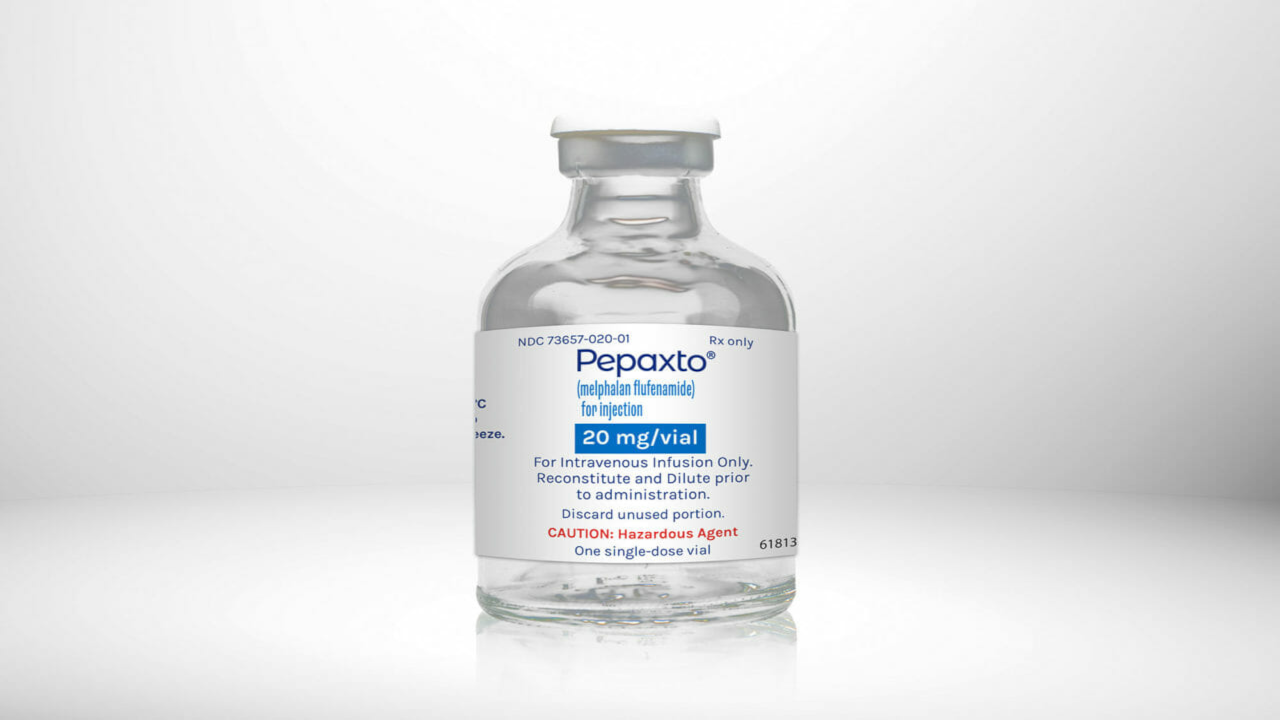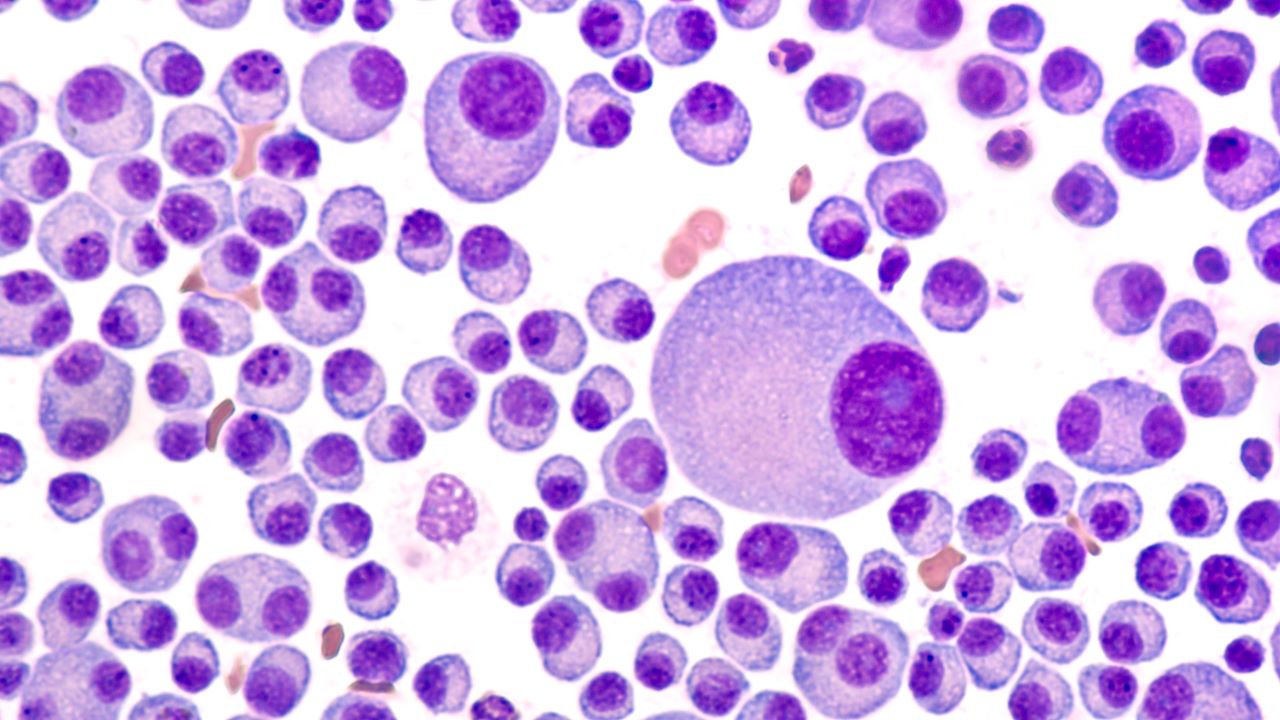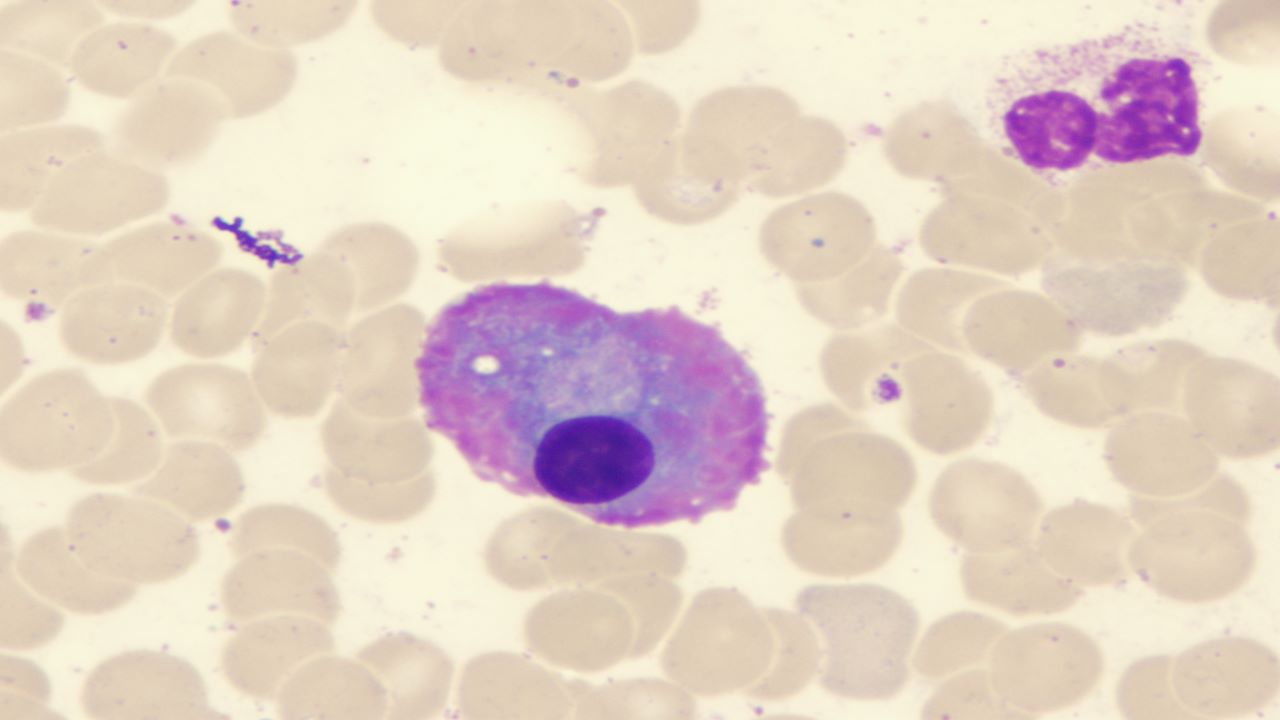PEPAXTO® (melphalan flufenamide) is a first-in-class peptide-drug conjugate indicated, in combination with the glucocorticoid dexamethasone, for the treatment of relapsed or refractory (r/r) multiple myeloma in adult patients.
Developed by global biotech company Oncopeptides, melphalan flufenamide is available in a single-dose vial as a sterile lyophilised white to off-white powder in 20mg dosage strength. The drug is administered intravenously after reconstitution and further dilution.
PEPAXTO approvals
In June 2020, Oncopeptides submitted a new drug application (NDA) for accelerated approval of melphalan flufenamide to the US Food and Drug Administration (FDA) for the treatment of triple-class refractory multiple myeloma in adult patients. The FDA granted priority review to the application in August 2020.
In February 2021, the FDA granted accelerated approval to PEPAXTO, in combination with dexamethasone, for the treatment of adult patients with r/r multiple myeloma. Patients who have received at least four prior lines of therapy and who are resistant to at least one proteasome inhibitor, one immunomodulatory agent and one CD38-directed monoclonal antibody are eligible to receive the therapy.
The drug also holds orphan drug designation from both the European Medicines Agency (EMA) and the FDA for the treatment of multiple myeloma.
In April 2021, Oncopeptides submitted an application to the EMA for conditional marketing authorisation of melphalan flufenamide within the European Union (EU).
Multiple myeloma causes and symptoms
Multiple myeloma is a blood cancer that affects plasma cells, a type of white blood cell, in the body. The disease’s exact aetiology is unknown.
The disease abnormally proliferates plasma cells in the bone marrow and impairs the production of healthy blood cells, leading to low blood counts.
According to the National Cancer Institute, myeloma accounted for almost 1.8% of all new cancer cases in the US in 2020.
Symptoms of multiple myeloma include bone damage, fatigue, anaemia, hypercalcemia, impaired kidney function and kidney failure.
Multiple myeloma is diagnosed in around seven in every 100,000 Americans each year. The number of cases diagnosed each year is anticipated to almost double in the next 20 years.
PEPAXTO’s mechanism of action
PEPAXTO is a peptide-conjugated alkylating drug that targets aminopeptidases overexpressed in multiple myeloma cells and rapidly releases alkylating agents into tumour cells.
Melphalan flufenamide is rapidly delivered into myeloma cells by passive diffusion due to its high lipophilicity and quickly hydrolysed by peptidases, releasing a hydrophilic alkylator payload. This induces rapid irreversible DNA damage, causing apoptosis of cancer cells.
Clinical trials on PEPAXTO
The FDA’s approval of PEPAXTO was based on the outcome of a multi-centre, single-arm pivotal, Phase II clinical trial, HORIZON. The trial enrolled 157 r/r multiple myeloma patients to evaluate the efficacy of melphalan flufenamide in combination with dexamethasone.
The patients were administered with 40mg of melphalan flufenamide intravenously on day one, and 40mg of dexamethasone orally on days one, eight and 15 of each 28-day treatment cycle, until either disease progression or intolerable toxicity.
The trial’s primary endpoint was the overall response rate (ORR) and duration of response (DOR), as assessed by investigators, according to the International Myeloma Working Group (IMWG) Criteria.
Of the 97 patients whose efficacy results were analysed, PEPAXTO elicited the ORR in 23.7% of patients with 4.2 months of median DOR.
The most common adverse events that occurred in more than 20% of PEPAXTO-treated patients were nausea, pyrexia, diarrhoea, fatigue and respiratory tract infection.





